Payday Somedayby Robert G. Lee (1886-1974)
Arise, go down to meet Ahab king of Israel, which is in Samaria: behold, he is in the vineyard of Naboth, whither he is gone down to possess it. And thou shalt speak unto him, saying, Thus saith the Lord, Hast thou killed, and also taken possession? And thou shalt speak unto him, saying, Thus saith the Lord, In the place where dogs licked the blood of Naboth shall dogs lick thy blood, even thine . . And of Jezebel also spake the Lord, saying, The dogs shall eat Jezebel by the wall of Jezreel (I Kings 21:18,19,23).
I introduce to you Naboth. Naboth was a devout Israelite who lived in the town of Jezreel. Naboth was a good man. He abhorred that which is evil. He clave to that which is good. He would not dilute the stringency of his personal piety for any profit in money. He would not change his heavenly principles for loose expediencies. And this good man who loved God, his family and his nation, had a little vineyard which was close by the summer palace of Ahab, the king — a palace unique in its splendor as the first palace inlaid with ivory. This little vineyard had come to Naboth as a cherished inheritance from his forefathers — and all of it was dear to his heart.I introduce to you Ahab, the vile human toad who squatted upon the throne of his nation — the worst of Israel’s kings. King Ahab had command of a nation’s wealth and a nation’s army, but he had no command of his lusts and appetites. Ahab wore rich robes, but he had a sinning and wicked and troubled heart beneath them. He ate the finest food the world could supply — and this food was served to him in dishes splendid by servants obedient to his every beck and nod — but he had a starved soul. He lived in palaces sumptuous within and without, yet he tormented himself for one bit of land more. Ahab was a king with a throne and a crown and a scepter, yet he lived nearly all of his life under the thumb of a wicked woman — a tool in her hands. Ahab pilloried himself in the contempt of all God-fearing men as a mean and selfish rascal who was the curse of his country. The Bible introduces him to us in words more appropriate than these when it says:
But there was none like unto Ahab, which did sell himself to work wickedness in the sight of the Lord, whom Jezebel his wife stirred up. And he did very abominably in following idols, according to all things as did the Amorites, whom the Lord cast out before the children of Israel . . . And Ahab made a grove; and Ahab did more to provoke the Lord God of Israel to anger than all the kings of Israel that were before him (I Kings 21:25,26; 16:33).
I introduce to you Jezebel, daughter of Ethbaal, King of Tyre (I Kings 16:31), and wife of Ahab, the King of Israel — a king’s daughter and a king’s wife, the evil genius at once of her dynasty and of her country. Infinitely more daring and reckless was she in her wickedness than was her wicked husband. Masterful, indomitable, implacable, a devout worshiper of Baal, she hated anyone and everyone who spoke against or refused to worship her pagan god. As blunt in her wickedness and as brazen in her lewdness was she as Cleopatra, fair sorceress of the Nile. She had all the subtle and successful scheming of Lady Macbeth, all the adulterous desire and treachery of Potiphar’s wife (Gen. 39:7-20), all the boldness of Mary Queen of Scots, all the cruelty and whimsical imperiousness of Katherine of Russia, all the devilish infamy of a Madame Pompadour, and, doubtless, all the fascination of personality of a Josephine of France. Most of that which is bad in all evil women found expression through this painted viper of Israel. She had that rich endowment of nature which a good woman ought always to dedicate to the service of her day and generation. But, alas! This idolatrous daughter of an idolatrous king of an idolatrous people engaging with her maidens in worship unto Ashtoreth — the personification of the most forbidding obscenity, uncleanness, and sensuality — became the evil genius who wrought wreck, brought blight and devised death. She was the beautiful and malicious adder coiled upon the throne of the nation.
I introduce to you Elijah, the Tishbite, prophet of God at a time when by tens of thousands the people had forsaken God’s covenants, thrown down God’s altars, slain God’s prophets with the sword (I Kings 19:10). The prophet, knowing much of the glorious past of the now apostate nation, must have been filled with horror when he learned of the rank heathenism, fierce cruelties and reeking licentiousness of Ahab’s idolatrous capital. Holy anger burned within him like an unquenchable Vesuvius. He wore the roughest kind of clothes, but he had underneath these clothes a righteous and courageous heart. He ate bird’s food and widow’s fare, but he was a great physical and spiritual athlete. He was God’s tall cedar that wrestled with the paganistic cyclones of his day without bending or breaking. He was God’s granite wall that stood up and out against the rising tides of the apostasy of his day. Though much alone, he was sometimes attended by the invisible hosts of God. He grieved only when God’s cause seemed tottering. He passed from earth without dying — into celestial glory. Every where courage is admired and manhood honored and service appreciated, he is honored as one of earth’s greatest heroes and one of heaven’s greatest saints. He was a seer who saw clearly. He was a great heart who felt deeply. He was a hero who dared valiantly.
And now with the introduction of these four characters — Naboth, the devout Jezreelite — Ahab, the vile human toad who squatted befoulingly on the throne of the nation — Jezebel, the beautiful adder beside the toad — and Elijah, the prophet of the living God, I bring you the tragedy of “Payday Someday.”
And the first scene in the tragedy of “Payday Someday” is:
THE REAL ESTATE REQUEST
“Give me thy vineyard.”
And it came to pass after these things, that Naboth the Jezreelite had a vineyard, which was in Jezreel, hard by the palace of Ahab king of Samaria. And Ahab spake unto Naboth, saying, Give me thy vineyard, that I may have it for a garden of herbs, because it is near unto my house: and I will give thee for it a better vineyard than it; or, if it seem good to thee, I will give thee the worth of it in money (I Kings 21:1,2).
Thus far Ahab was quite within his rights. No intention had he of cheating Naboth out of his vineyard or of killing him to get it. Honestly did he offer to give him its worth in money. Honestly did he offer him a better vineyard for it. Perfectly fair and square was Ahab in this request and, under Circumstances ordinary, one would have expected Naboth to put away any mere sentimental attachment which he had for his ancestral inheritance in order that he might please the king of his nation — especially when the king’s aim was not to defraud or rob him. Ahab had not, however, counted upon the reluctance of all Jews to part with their inheritance of land. By peculiar tenure every Israelite held his land, and to all land-holding transactions there was another party, even God, “who made the heavens and the earth.” Throughout Judah and Israel, Jehovah was the real owner of the soil; and every tribe received its territory and every family its inheritance by lot from Him, with the added condition that the land should not be sold forever.
The land shall not be sold for ever: for the land is mine; for ye are strangers and sojourners with Me … So shall not the inheritance of the children of Israel remove from tribe to tribe: for every one of the children of Israel shall keep him-self to the inheritance of the tribe of his fathers … but every one of the tribes of the children of Israel shall keep himself to his own inheritance (Lev. 25:23; Num. 36:7,9).
Thus we see that the permanent sale of the paternal inheritance was forbidden by law. Ahab forgot — if he had ever really known it — that for Naboth to sell for money or to swap for a better vineyard his little vineyard would seem to that good man like a denial of his allegiance to the true religion when jubilee restoration was neglected in such idolatrous times.So, though he was Ahab’s nearest neighbor, Naboth, with religious scruples blended with the pride of ancestry, stood firmly on his rights — and, with an expression of horror on his face and with tones of terror in his words, refused to sell or swap his vineyard to the king. Feeling that he must prefer the duty he owed to God to any danger that might arise from man, he made firm refusal. With much fear of God and little fear of man, he said: “The Lord forbid it me, that I should give the inheritance of my fathers unto thee” (I Kings 21:3).
True to the religious teachings of his father with loyalty to the covenant God of Israel, he believed that he held the land in fee simple from God. His father and grandfather and doubtless grandfather’s father, had owned the land before him. All the memories of childhood were tangled in its grapevines. His father’s hands, folded now in the dust of death, had used the pruning blade among the branches, and because of this every branch and vine was dear. His mother’s hands, now doubtless wrapped in a dust- stained shroud, had gathered purple clusters from those bunch-laden boughs, and for this reason he loved every spot in his vineyard and every branch on his vines. The ties of sentiment, of religion and of family pride bound and endeared him to the place. So his refusal to sell was quick, firm, final and courteous. Then, too, doubtless working or resting or strolling as he often did in his vineyard hard by the king’s castle, Naboth had had glimpses of strange and alien sights in the palace. He had seen with his own eyes what orgies idolatry led to when the queen was at home in her palace in Jezreel; and Naboth, deeply pious, felt smirched and hurt at the very request. He felt that his little plot of ground, so rich in prayer and fellowship, so sanctified with sweet and holy memories, would be tainted and befouled and cursed forever if it came into the hands of Jezebel. So with “the courage of a bird that dares the wild sea,” he took his stand against the king’s proposal.
And that brings us to the second scene in this tragedy. It is:
THE POUTING POTENTATE
“He came into his house heavy and displeased.”
Naboth’s quick, firm, courteous, final refusal took all the spokes from the wheels of Ahab’s desires and plans. Naboth’s refusal was a barrier that turned aside the stream of Ahab’s desire and changed it into a foiled and foaming whirlpool of sullen sulks.
And Ahab came into his house heavy and displeased because of the word which Naboth the Jezreelite had spoken to him: for he had said, I will not give thee the inheritance of my fathers. And he laid him down upon his bed, and turned away his face, and would eat no bread (I Kings 21:4).
What a ridiculous picture’ A king acting like a spoiled and sullen child — impotent in disappointment and ugly in petty rage! A king, whose victories over the Syrians have rung through many lands — a conqueror, a slave to himself — whining like a sick hound! A king, rejecting all converse with others, pouting like a spoiled and petulant child who has been denied one trinket in the midst of one thousand play-things! A king, in a chamber “cieled with cedar, and painted with vermilion” (Jer. 22:14), prostituting genius to theatrical trumpery.
Ahab went into his ivory house, while the sun was shining and the matters of the daytime were all astir, and went to bed and “turned his face to the wall” – his lips swollen with his mulish moping, his eyes burning with cheap anger-fire, his wicked heart stubborn in perverse rebellion against the commandment of God. Servants brought him his meal, plenteously prepared on platters beautiful, but he “would eat no bread.” Doubtless, musicians came to play skillfully on stringed instruments, but he drove them all away with imperious gestures and impatient growlings. He turned from his victuals as one turns from garbage and refuse. The conqueror of the Syrians is a low slave to dirt-cheap trivialities. His spirit, now devilishly sullen, is in bondage.
What an ancient picture we have of great powers dedicated to mean, ugly, petty things. Think of it! In the middle of the day, the commander-in-chief of an army seized by Sergeant Sensitive. General Ahab made prisoner by Private Pouts! The leader of an army laid low by Corporal Mopishness! A monarch moaning and blubbering and growlingly refusing to eat because a man, a good man, because of the commandments of God and because of religious principles, would not sell or swap a little vineyard which was his by inheritance from his forefathers. Ahab had lost nothing — had gained nothing. No one had injured him. No one had made attempt on his life. Yet he, a king with a great army and a fat treasury, was acting like a blubbering baby. Cannon ability was expressing itself in popgun achievement. A massive giant sprawling on the bed like a dwarf punily peevish! A whale wallowing and spouting angrily about because he is denied minnow food! A bear growling sulkily because he cannot lick a spoon in which is a bit of honey! An eagle shrieking and beating his wings in the dust of his own displeasure like a quarreling sparrow fussily fighting with other sparrows for the crumbs in the dust of a village street! A lion sulkily roaring because he was not granted the cheese in a mouse trap! A battleship cruising for a beetle!
What an ancient picture of great powers and talents prostituted to base and purposeless ends and withheld from the service of God! What an ancient spectacle! And how modern and up-to-date, in this respect, was Ahab, king of Israel. What a likeness to him in conduct today are many talented men and women. I know men and women — you know men and women — with diamond and ruby abilities who are worth no more to God through the churches than a punctured Japanese nickel in a Chinese bazaar! So many there are who, like Ahab, withhold their talents from God — using them in the service of the devil. People there are, not a few, who have pipe organ abilities and make no more music for the causes of Christ than a wheezy saxophone in an idiot’s hands. People there are, many of them, who have incandescent light powers who make no more light for God than a smoky barn lantern, with smoke-blackened globe, on a stormy night. People there are — I know them and you know them — with locomotive powers doing pushcart work for God. People there are — and how sad ’tis true — who have steam-shovel abilities who are doing teaspoon work for God. Yes! Now look at this overfed bull bellowing for a little spot of grass outside his own vast pasture lands — and, if you are withholding talents and powers from the service of God, receive the rebuke of the tragic and ludicrous picture.
And now, consider the third scene in this tragedy of “Payday Someday.” It is:
THE WICKED WIFE
“And Jezebel his wife.”
When Ahab would “eat no bread,” the servants went and told Jezebel. What she said to them, we do not know. Something of what she said to Ahab we do know. Puzzled and provoked at the news that her husband would not eat — that he had gone to bed when it was not bedtime — Jezebel went to investigate. She found him in bed with his face turned to the wall, his lips swollen with mulish moping, his eyes burning with cheap anger-fire, his heart stubborn in wicked rebellion. He was groaningly mournful and peevishly petulant — having, up to the moment when she stood by his bedside, refused to eat or cheer up in the least.
Looking at him then, she doubtless, as is the custom with women until this day, put her hand on his forehead to see if he had fever. He had fever-without doubt! He was set on fire of hell, even as is a wicked tongue (Jas. 3:6). Then, in a voice of “Sweet” solicitation, she sought the reason of his anger. She asked, to put it in the semi-slang language of our day: “What’s the matter with you, Big Boy?” But, in the words of the Bible: “Why is thy spirit so sad, that thou eatest no bread?” (I Kings 21:5). Then, with his mouth full of grouches, with his heart stubborn in rebellion against the commandment of God, he told her — his every word full of mopish petulance:
Because I spake unto Naboth the Jezreelite, and said unto him, Give me thy vineyard for money; or else, if it please thee, I will give thee another vineyard for it: and he answered, I will not give thee my vineyard (I Kings 21:6).
Every word he said stung like a whip upon a naked back this wickedly unscrupulous woman who had never had any regard for the welfare of anyone who did not worship her god, Baal — who never had any conscientious regard for the rights of others, or for others who did not yield to her whimsical imperiousness.Hear her derisive laugh as it rings Out in the palace like the shrill cackle of a wild fowl that has returned to its nest and has found a serpent therein! With her tongue, sharp as a razor, she prods Ahab as an ox driver prods with sharp goad the ox which does not want to press his neck into the yoke, or as one whips with a rawhide a stubborn mule. With profuse and harsh laughter this old gay and gaudy guinea of Satan derided this king of hers for a cowardly buffoon and sordid Jester What hornet like sting in her sarcasm! What wolf mouth fierceness in her every reproach! What tiger fang cruelty in her expressed displeasure! What fury in the shrieking of her rebuke! What bitterness in the teasing taunts she hurled at him for his scrupulous timidity! Her bosom with anger was heaving! Her eyes were flashing with rage under the surge of hot anger that swept over her.
“Are you not the king of this country?” she chides bitingly, her tongue sharp like a butcher’s blade. “Can you not command and have it done?” she scolds as a common village hag who has more noise than wisdom in her words “Can you not seize and keep?” she cries with reproach. “I thought you told me you were king in these parts! And here you are crying like a baby and will not eat anything because you do not have courage to take a bit of land. You! Ha! Ha! Ha! Ha! You, the king of Israel, allow yourself to be disobeyed and defied by a common clodhopper from the country. You are more courteous and considerate of him than you are of your queen! Shame on you! But you leave it to me! I will get the vineyard for you, and all that I require is that you ask no questions. leave it to me, Ahab!”
And Jezebel his wife said unto him, Dost thou now govern the kingdom of Israel? arise, and eat bread, and let thine heart be merry: I will give thee the vineyard of Naboth the Jezreelite (I Kings 21:7).
Ahab knew Jezebel well enough to know that she would do her best, or her worst, to keep her wicked promise. So, as a turtle that has been sluggish in the cold winter’s mud begins to move when the spring sunshine warms the mud, Ahab crawled out of the slime of his sulks — somewhat as a snake arouses and uncoils from winter sleep. Then Jezebel doubtless tickled him under the chin with her bejewelled fingers or kissed him peckingly on the cheek with her lips screwed in a tight knot, and said: “There now! Smile! And eat something. I will get thee the vineyard of Naboth the Jezreelite!”Now, let us ask, who can so inspire a man to noble purposes as a noble woman? And who can so thoroughly degrade a man as a wife of unworthy tendencies? Back of the statement, “And Ahab the son of Omri did evil in the sight of the Lord above all that were before him” (I Kings 16:30), and back of what Elijah spoke, “Thou hast sold thyself to work evil in the sight of the Lord” (I Kings 21:20), is the statement explaining both the other statements: “Whom Jezebel his wife stirred up.” She was the polluted reservoir from which the streams of his own iniquity found mighty increase. She was the poisonous pocket from which his cruel fangs fed. She was the sulphurous pit wherein the fires of his own iniquity found fuel for intenser burning. She was the Devil’s grindstone which furnished sharpening for his weapons of wickedness.
Search the pages of the Bible all you will; study history all you please. And you will find one truth that stands out above some other truths. What is that truth? The truth that the spiritual life of a nation, city, town, school, church, or home never rises any higher than the spiritual life of women. When women sag morally and spiritually, men sag morally and spiritually. When women slump morally and spiritually, men slip morally and spiritually. When women take the downward road men travel with them. When women are lame morally and spiritually, men limp morally and spiritually. The degeneracy of womanhood helps the decay of manhood.
Yes — we ask again — who can so degrade a man as a woman of wicked tendencies and purposes? Is not a woman without spiritual religion and love of God in her heart like a rainbow without color — like a strong poisoned well from which the thirsty drink — like a heated stove whose heat is infection — like kissing lips spread with deadly poison?
What a tragedy when any woman thinks more of paint than purity, of vulgarity than virtue, of pearls than principles of adornment with righteous adoration, of hose and hats than holiness, of dress than duty, of mirrors than manners! What a tragedy when any woman sacrifices decency on the altar of degradation — visualizing the slimy, the tawdry, the tinseled!
We ask — just here — some questions. Who dominated the papacy in its most shameful days? Lucretia Borgia — a woman. Who really ordered the massacre of Saint Bartholomew’s day? Catherine de Medici — a woman. Who breathed fury through Robespierre in those dark and bloody days in France when the guillotine was chopping off the heads of the royalty? A woman — determined, devilish, dominant! Who caused Samson to have his eyes punched out and to be a prisoner of the Philistines, after he had been a judge in Israel for twenty years? Delilah — a woman! Who caused David to stake his crown for a caress? Bathsheba — a woman. Who danced Herod into hell? Herodias — a woman! Who was like a heavy chain around the neck of Governor Felix for life or death, for time and eternity? Drusilla — a woman! Who, by lying and diabolical stratagem, sent the spotless Joseph to jail because he refused her dirty, improper proposal? Potiphar’s wife. Who suggested to Haman that he build a high gallows on which to hang Mordecai, the Jew? Zeresh — a woman — his wife! Who told Job in the midst of his calamities, financial and physical, to curse God and die? A woman — his wife. Who ruined the career of Charles Stewart Parnell and delayed Home Rule for Ireland in the good days of good Queen Victoria? Kitty O’Shea — a woman. Who caused Anthony to throw away the world at the battle of Actium and follow the enchantress of the Nile back to Egypt? The enchantress herself, Cleopatra — a woman — the lovely serpent coiled on the throne of the Ptolemies.
So also it was a woman, a passionate and ambitious idolatress, even Jezebel, who mastered Ahab. Take the stirring crimes of any age, and at the bottom, more or less consciously concerned, the world almost invariably finds a woman. Only God almighty knows the full story of the foul plots hatched by women.
But we know enough to say that some of the foulest plots that have been hatched out of Satan’s incubator were hatched out of eggs placed therein by women’s hands.
But let me say, incidentally, if women have mastered men for evil, they have also mastered them for good — and we gladly make declaration that some of the fairest and most fragrant flowers that grow in the garden of God and some of the sweetest and most luscious fruit that ripens in God’s spiritual orchards are there because of woman’s faith, woman’s love, woman’s prayer, woman’s virtue, woman’s tears, woman’s devotion to Christ.
But as for Ahab, it was Jezebel who stirred him up to more and mightier wickedness than his own wicked mind could conceive or his own wicked hand could execute.
Let us come to the next terrible scene in this tragedy of sin. The next scene is:
A MESSAGE MEANING MURDER
“She wrote letters.”
Jezebel wrote letters to the elders of Jezreel. And in these letters she made definite and subtle declaration that some terrible sin had been committed in their city, for which it was needful that a fast should be proclaimed in order to avert the wrath of Heaven.
So she wrote letters in Ahab’s name, and sealed them with his seal, and sent the letters unto the elders and to the nobles that were in his city, dwelling with Naboth. And she wrote in the letters, saying, Proclaim a fast, and set Naboth on high among the people: and set two men, sons of Belial, before him, to bear witness against him, saying, Thou didst blaspheme God and the king. And then carry him Out, and stone him, that he may die (I Kings 21:8-10).
This letter, with cynical disregard of decency, was a hideous mockery in the name of religion. Once get the recusant citizen accused of blasphemy, and, by a divine law, the property of the blasphemer and rebel went to the crown. “Justice! How many traitors to sacred truth have dragged the innocent to destruction!”
Surely black ink never wrote a fouler plot or death scheme on white paper since writing was known among men. Every drop had in it the adder’s poison. Every syllable of every word of every line of every sentence was full of hate toward him who had done only good continually. Every letter of every syllable was but the thread which, united with other threads, made the hangman’s noose for him who had not changed his righteous principles for the whim of a king. The whole letter was a diabolical death-warrant.
The letters being written, must be sealed; and the sealing was done, as all these matters of letter writing and sealing were done, by rubbing ink on the seal, moistening the paper, and pressing the seal thereon. And when Jezebel had finished with her iniquitous pen, she asked Ahab for his signet ring; with that ring she affixed the royal seal. She sealed the letters with Ahab’s ring (I Kings 21:8). When Ahab gave it to her he knew it meant crime of some sort, but he asked no questions. Moreover, Jezebel’s deeds showed that when she went down to market, as it were, she would have in her basket a nice vineyard for her husband when she returned. She said to herself: “This man Naboth has refused my honorable lord on religious grounds, and by all the gods of Baal, I will get him yet on these very same grounds.” She understood perfectly the passion of a devout Jew for a public fast; and she knew that nothing would keep the Jews away. Every Jew and every member of his household would be there.
“Proclaim a fast!” Fasting has ever been a sign of humiliation before God. of humbling one’s self in the dust before the “high and lofty One that inhabiteth eternity.” The idea in calling for a fast was clearly to declare that the community was under the anger of God on account of a grave crime committed by one of its members, which crime is to be exposed and punished. Then, too, the fast involved a cessation of work, a holiday, so that the citizens would have time to attend the public gathering.
“Set Naboth on high!” “On high” meant before the bar of justice, not in the seat of honor. “On high” meant in the seat of the accused, and not in the seat to be desired. “On high” meant that Naboth was put where every eye could watch him closely and keenly observe his bearing under the accusation. “And set two men, base fellows, before him.” How illegal she was in bringing about his death in a legal way! For the law required two witnesses in all cases where the punishment was death. “At the mouth of two witnesses, or three witnesses, shall he . . . be put to death” (Deut. 17:6). The witnesses required by Jezebel were men of no character, men who would take bribes and swear to any lie for gain.
And let them “bear witness against him”! In other words, put him out of the way by judicial murder, not by private assassination. “And then Carry him out, and stone him, that he may die.” A criminal was not to be executed within a city, as that would defile it! Thus Christ was crucified outside the walls of Jerusalem! We see that Jezebel took it for granted that Naboth would be condemned.
And so one day, while Naboth worked in his vineyard, the letters came down to Jezreel. And one evening, while Naboth talked at the cottage door with his sons or neighbors, the message meaning murder was known to the elders of the city. And that night, while he slept with the wife of his bosom, the hounds of death let loose from the kennels of hell by the jewel-adorned fingers of a king’s daughter and a king’s wife were close on his heels. The message meaning murder was known to many but not to him, until they came and told him that a fast had been proclaimed — proclaimed because God had been offended at some crime and that His wrath must be appeased and the threatening anger turned away, and he himself, all unconscious of any offense toward God or the king, was to be set in the place of the accused, even “on high among the people,” to be tried as a conspicuous criminal.
THE FATAL FAST
“They proclaimed a fast.”
And what concern they must have created in the household of Naboth, when they knew that Naboth was to be “set on high,” even in the “seat of the accused,” even before the bar of “justice,” because of a ferocious message calling religion in to attest a lie. And what excitement there was in the city when, with fawning readiness to carry out her vile commands, the elders and nobles “fastened the minds” of the people upon the fast — proclaimed as if some great calamity were overhanging the city for their sins like a black cloud pretending a storm, and proclaimed as if something must be done at once to avert the doom. Curious throngs hurried to the fast to see him who had been accused of the crime which made necessary the appeasing of the threatening wrath of an angered God.
Yes, the rulers of Jezreel, either in dread of offending one whose revenge they knew was terrible, or eager to do a service to one to whom in temporal matters they were so largely indebted, or moved with envy against their own iniquity, carried out her instructions to the letter. They were ready and efficient tools in her hands. No doubt she had tested their character as her “butcher boys” in the slaughter of the prophets of the Lord.
And they did! “And there came in two men, children of Belial, and sat down before him” (I Kings 21:13). Satan’s hawks ready to bring death to God’s harmless sparrow! Satan’s eagles ready to bury their cruel talons in God’s innocent dove. Satan’s bloody wolves ready to kill God’s lamb! Satan’s boars ready with keen tusks to rip God’s stag to shreds! Reckless and depraved professional perjurers they were! “And the men of Belial witnessed against him, even against Naboth, in the presence of the people, saying, Naboth did blaspheme God and the king” (I Kings 21:13).
Then strong hands jerked Naboth out of the seat of the accused. Doubtless muttering curses the while, they dragged him out from among the throngs of people, while children screamed and cried, while women shrieked in terror, while men moved in confusion and murmured in consternation. They dragged him roughly to a place outside the walls of the city and with stones they beat his body to the ground.
Naboth fell to the ground as a lily by hailstones beaten to earth, as a stately cedar uprooted by furious storm. His head by stones is crushed, as eggs crushed by the heel of a giant. His legs are splintered! His arms are broken! His ribs are crushed. Bones stick out from the mass of human flesh as fingers of ivory from pots of red paint. Brains, emptied from his skull, are scattered about. Blood splatters like crimson rain. Naboth’s eyes roll in sockets of blood. His tongue between broken jaws becomes still. His mauled body becomes — at last — still. His last gasp is a sigh. Naboth is dead — dead for cursing God and the king as many were led to believe!
And we learn from II Kings 9:26, that by the savage law of those days his innocent sons were involved in his overthrow. They, too, that they might not claim the inheritance, were slain. And Naboth’s property, left without heirs, reverted to the crown.
Thus it came to pass that in an orderly fashion, in the name of religion and in the name of the king, Naboth really fell, not by the king’s hand, but by the condemnation of his fellow citizens. Yes, the old-fashioned conservatism of Naboth was, in the judgment of many, sorely out of place in that “progressive” state of society. No doubt Naboth’s righteous austerity had made him extremely unpopular in many ways in “progressive Jezreel.” And since Jezebel carried out her purpose in a perfectly legal and orderly way and in a “‘wonderfully” democratic manner, we see a fine picture of autocracy working by democratic methods. And when these “loyally patriotic citizens” of Jezreel had left the bodies of Naboth and his sons to be devoured by the wild dogs which prowled after nightfall in and around the city, they sent and told Queen Jezebel that her orders had been bloodily and completely obeyed! “Then they sent to Jezebel, saying, Naboth is stoned, and is dead” (I Kings 21:14).
I do not know where Jezebel was when she received the news of Naboth’s death. Maybe she was out on the lawn watching the fountains splash. Maybe she was in the sun parlor, or somewhere listening to the musicians thrum on their instruments. But, if I judge this painted human viper by her nature, I say she received the tragic news with devilish delight, with jubilant merriment. What was it to her that yonder, over twenty miles away, sat a little woman who the night before had her husband but who now washed his crushed and ghastly face with her tears? What did it matter to her that in Jezreel only yesterday her sons ran to her at her call hut today were mangled in death? What did it matter to her that outside the city walls the dogs licked the blood of a godly husband? What mattered it to her that Jehovah God has been defied, His commandments broken, His altars splattered with pagan mud, His holy Name profaned? What mattered it to her that the worship of God had been dishonored? What did she care if a wife, tragically widowed by murder, walked life’s way in loneliness? What did she care that there was lamentation and grief and great mourning, “Rachel weeping for her children because they were not”? What did she care if justice had been outraged just so she had gotten the little plot of land close by their palace, within which was evil girt with diadem? Nothing! Did pang grip her heart because innocent blood had been shed? Just as well ask if the ravenous lion mourns over the lamb it devours.
Trippingly, as a gay dancer, she hurried to where Ahab sat. With profuse caresses and words glib with joy she told him the “good” news. She had about her the triumphant manner of one who has accomplished successfully what others had not dared attempt. Her “tryout” in getting the vineyard was a decided “triumph.” She had “pulled the stunt.” She had been “brave” and “wise” — and because of this her husband now could arise and hie him down to the vineyard and call it his own.
In her words and manner there was jubilant elation bordering on the satanic. “Arise!” she said. “Get thee down and take possession of the vineyard of Naboth. I told thee I would get his vineyard for thee. And I got for nothing what thou wast going to give a better vineyard for!”
And it came to pass, when Jezebel heard that Naboth was stoned, and was dead, that Jezebel said to Ahab, Arise, take possession of the vineyard of Naboth the Jezreelite, which be refused to give thee for money: for Naboth is not alive, but dead (I Kings 21:15).
It was the plot hatched in her own mind and it was her hand, her lily-white hand, her queen’s hand, that wrote the letters that made this tragic statement true.The next scene in this tragedy of “Payday Someday” is:
THE VISIT TO THE VINEYARD
“Ahab rose up to go down to the vineyard.”
How Jezebel must have paraded with pride before Ahab when she went with tidings that the vineyard which he wanted to buy was now his for nothing! How keen must have been the sarcasm of her attitude when she made it known by word and manner that she had succeeded where he failed — and at less cost! How gloatingly victorious were the remarks which she made which kept him warmly reminded that she had kept her “sacred” promise! What a lovely fabric, stained and dyed red with Naboth’s blood, she spread before him for his “comfort” from the loom of her evil machinations!
“And it came to pass, when Ahab heard that Naboth was dead, that Ahab rose up to go down to the vineyard of Naboth the Jezreelite, to take possession of it” (I Kings 21:16). Ahab rose up to go down — from Samaria to Jezreel. He gave orders to his royal wardrobe keeper to get out his king’s clothes, because he had a little “business” trip to make to hook over some property that had come to him by the shrewdness of his wife in the real estate market!
Yes, Naboth, the good man who “feared the lord,” is dead; and Ahab expresses no condemnation of this awful conspiracy, culminating in such a tragic horror. Though afraid or restrained by his conscience from committing murder himself, he had no scruple in availing himself of the results of such crime when perpetrated by another. He flattered himself that, by the splendid genius of his queen in bloody matters, he, though having no part in the crime which did Naboth to death, might, as well as another, “receive the benefit of his dying.”
And you will notice just here that not one noble or elder had divulged the terrible secret which had given the semblance of legality to atrocious villainy. And, Ahab, rejoicing in the bloody garment woven on the loom of his wife’s evil machinations, gave orders to those in charge of livery stables to get ready his royal chariot for an unexpected trip. Jehu and Bidkar, the royal charioteers, make ready the great horses such as kings had in those days. Jehu was the speed-breaking driver of his day, known as the one who drove furiously. The gilded chariot is drawn forth. The fiery horses are harnessed and to the king’s chariot hitched. The outriders, in gorgeous garments dressed, saddle their horses and make ready to accompany the king in something of military state. Then, amid the chatter of prancing hoofs and the loud breathing of the chariot horses — eager-eyes, alert, strong-muscled, bellows-lunged, stouthearted, and agile of feet — Jehu drives the horses and the chariot up to the palace steps. Out from the palace doors, with Jezebel walking, almost strutting, proudly and gaily at his side, comes Ahab. Down the steps he goes while Jezebel, perhaps, waves a bejeweled hand to him or speaks a “sweet” good-by. Bidkar opens the chariot door. Ahab steps in. Then, with the crack of his whip or a sharp command by word of mouth, Jehu sends the great horses on their way — away from the palace steps, away from the palace grounds, away through the gates, away, accompanied by the outriders, away down the road to Jezreel!
Where is God? Where is God? ls He blind that He cannot see? Is He deaf that He cannot hear? Is He dumb that He cannot speak? Is He paralyzed that He cannot move? Where is God? Well, wait a minute, and we shall see.
Over there in the palace Jezebel said to Ahab her husband:
“Arise! Get thee down and take possession of the vineyard of Naboth.” And over in the wilderness way, out where the tall cedars waved against the moon like green plumes against a silver shield, out where the only music of the night was the weird call of whippoorwill and the cough of coyote and the howl of wolf, out there God had an eagle-eyed, hairy, stout-hearted prophet, a great physical and spiritual athlete, Elijah. “And the Word of the Lord came to Elijah.” And God said to Elijah: “Arise, go down.”
Over here, in the palace, Jezebel said to Ahab: “Arise, get thee down!” And out there, near Carmel, God said to Elijah: “Arise!” I am so glad that I live in a universe where, when the Devil has his Ahab to whom he can say, “Arise,” God has His Elijah to whom He can say, “Arise!”
And the word of the Lord came to Elijah the Tishbite, saying, Arise, go down to meet Ahab king of Israel, which is in Samaria: behold, he is in the vineyard of Naboth, whither be is gone down to possess it. And thou shalt speak unto him, saying, Thus saith the Lord, Hast thou killed, and also taken possession? And thou shalt speak unto him, saying, Thus saith the Lord, In the place where dogs licked the blood of Naboth, shall dogs lick thy blood, even thine (I Kings 21:17-19).
As Ahab goes down to Jezreel, the voice of Jehu, as he restrains the fiery horses, or the lash of his whip as he urges them on, attracts the attention of the grazing cattle in adjacent pasture hand. The sound of clanking hoofs of cantering horses resounds in every glen by the roadway. The gilded chariot catches the light of the sun and reflects it brightly, but he who rides therein is unmindful of the bloodstains on the ground where Naboth died. Dust clouds arise from the chariot’s wheels and wild winds blow them across the fields where the plowman or the reaper wonders who goes so swiftly along the highway. The neighing steeds announce to all that Ahab’s royal horses tire not in Carrying him down from Samaria to Jezreel. And soon many know that the chariot carried the king who was going down to possess what had reverted to the crown, even the vineyard of Naboth, which Naboth refused to sell to him. Would the “game” be worth the “candle”? Would Ahab learn that sin buys pleasure at the price of peace? We shall see — and that right soon!And that brings us to the other scene in his tragedy of “Payday Someday.” It is:
THE ALARMING APPEARANCE
“The word of the Lord came to Elijah.”
The journey of twenty-odd miles from Samaria to Jezreel is over. Jehu brings the horses to a stop outside the gate to the vineyard. The horses stretch their necks trying to get slack on the reins. They have stood well the furious pace at which they have been driven. Around the rim of their harness is the foam of their sweat. On their flanks are, perhaps, the marks of Jehu’s whip. They breathe as though their great lungs were a tireless bellows. The outriders line up in something of military formation. The hands of ready servants open the gate to the vineyard. Bidkar opens the chariot door. And Ahab steps out into Naboth’s vineyard. There, no doubt, he sees, in the soft soil, Naboth’s footprints. Close by, doubtless, the smaller footprints of his wife he sees. Naboth is dead, and the coveted vineyard is now Ahab’s through the “gentle scheming” of the queen of his house. Perhaps Ahab, as he walks into the vineyard, sees Naboth’s pruning hook among the vines. Or he notices the fine trellis work which Naboth’s hands had fastened together for the growing vines. Perhaps, in a corner of the vineyard is a seat where Naboth and his sons rested after the day’s toil, or a well where sparkling waters refreshed the thirsty or furnished water for the vines in time of drought.
Ahab walks around his newly-gotten vineyard. The rows of vines glisten in the sunlight. Maybe a breeze moves the leaves on the vines. Ahab admires trellis and cluster. As he walks, he plans how he will have the royal gardener to pull up those vines and plant cucumbers, squash, garlic, onions, cabbage and other vegetables that he may have his “garden of herbs.”
And while Ahab strolls among the vines that Naboth tended, what is it that appears? Snarling wild boasts? No. Black clouds full of threatening storm? No, not that. Flaming lightning which dazzles him? No. War chariots of his ancient enemies rumbling along the road? No. An oncoming flood sweeping things before it? No; not a flood. A tornado goring the earth? No. A huge serpent threatening to encircle him and crush his bones in its deadly coils? No; not a serpent. What then? What alarmed Ahab so? let us follow him and see.
As Ahab goes walking through the rows of vines, he begins to plan how he will have that vineyard arranged by his royal gardener, how flowers will be here and vegetables yonder and herbs there. As he converses with himself, suddenly a shadow falls across his path. Quick as a flash Ahab whirls on his heels, and there, before him, stands Elijah, prophet of the living God. Elijah’s cheeks are swarthy; his eye is keen and piercing; like coals of fire, his eyes burn with righteous indignation in their sockets; his bosom heaves; his head is held high. His only weapon is a staff: his only robe a sheepskin, and a leather girdle about his loins. Like an apparition from the other world, like Banquo’s ghost at Macbeth’s feast, Elijah, with suddenness terrifying, stands before Ahab. Ahab had not seen Elijah for five years. Ahab thought Elijah had been cowed and silenced by Jezebel, but now the prophet confronts him with his death warrant from the Lord God Almighty.
To Ahab there is an eternity of agony in the few moments they stand thus, face to face, eye to eye, soul to soul! His voice is hoarse, like the cry of a hunted animal. He trembles like a hunted stag before the mouths of fierce hounds. Suddenly his face goes white. His lips quiver. He had gone to take possession of a vineyard, coveted for a garden of herbs; and there he is face to face with righteousness, face to face with honor, face to face with judgment. The vineyard, with the sun shining upon it now, is as black as if it were part of the midnight which has gathered in judgment. Like Poe ‘s raven “his soul from out that shadow shall be” lifted — nevermore.
“And Ahab said to Elijah, Hast thou found me, O mine enemy?” (I Kings 21:20) and Elijah, without a tremor in his voice, his eyes burning their way into Ahab’s guilty soul, answered: “I have found thee: because thou has sold thyself to work evil in the sight of the Lord.” Then, with every word a thunderbolt, and every sentence a withering denunciation, Elijah continued:
Hast thou killed, and also taken possession? . . . Thus saith the Lord, In the place where dogs licked the blood of Naboth shall dogs lick thy blood, even thine . . . Behold, I will bring evil upon thee, and will take away thy posterity . . . And will make thine house like the house of Jeroboam the son of Nebat, and like the house of Baasha the son of Ahijah, for the provocation wherewith thou hast provoked me to anger, and made Israel to sin! (I Kings 21:l9, 21,22).
And then, plying other words mercilessly like a terrible scourge to the Cringing Ahab, Elijah said:
And of Jezebel also spake the Lord, saying, The dogs shall eat Jezebel by the wall of Jezreel. Him that dieth of Ahab in the city the dogs shall eat: and him that dieth in the field shall the fowls of the air eat (I Kings 21:23,24).
And, with these words, making Ahab to cower as one cowers and recoils from a hissing adder, finding Naboth’s vineyard to be haunted with ghosts and the clusters thereof to be full of blood, Elijah went his way — as was his custom so suddenly to appear and so quickly to disappear.Ahab had sold himself for nought, as did Achan for a burial robe and a useless ingot, as did Judas for thirty pieces of silver which so burned his palms and so burned his conscience and so burned his soul that he found relief in the noose at the rope’s end. And when Ahab got back in the chariot to go back to Jezebel — the vile toad who squatted upon the throne to be again with the beautiful adder coiled upon the throne — the hoofs of the horses pounding the road pounded into his guilty soul Elijah’s words: “Someday — the dogs will lick thy blood! Someday the dogs will eat Jezebel by the ramparts of Jezreel.” God had spoken! Would it come to pass?
And now we come to the last scene in this tragedy, “Payday Someday.” It is:
PAYDAY ITSELF
Did God mean what He said? Or was He playing a prank on royalty? Did payday come? “Pay Day — Someday” is written in the constitution of God’s universe. The retributive providence of God is a reality as certainly as the laws of gravitation are a reality.
And to Ahab and Jezebel, payday came as certainly as night follows day, because sin carries in itself the seed of its own fatal penalty.
Dr. Meyer says: “According to God’s constitution of the world, the wrongdoer will be abundantly punished.” The fathers sow the wind and the children reap the whirlwind. One generation labors to scatter tares, and the next generation reaps tares and retribution immeasurable. To the individual who goes not the direction God points, a terrible pay-day comes. To the nation which forgets God, payday will come in the awful realization of the truth that the “nations which forget God shall be turned into hell.” When nations trample on the principles of the Almighty, the result is that the world is beaten with many stripes. We have seen nations slide into Gehenna — and the smoke of their torment has gone up before our eyes day and night.
To the home that has no room for the Christ, death and grave clothes are certain. “Ichabod” will be written about the church that soft-pedals on unpleasant truth or that stands not unwaveringly for “the faith once delivered” — and it will acknowledge its retribution in that it will become “a drifting sepulcher manned by a frozen crew.”
A man can prostitute God’s holy Name to profane lips if he will, but he is forewarned as to the pay-day in the words: “The lord will not hold him guiltless that taketh His Name in vain (Ex. 20:7).
A man can, if he will, follow the way of some wicked woman; but God leaves him not without warning as to the payday, in the words:
He goeth after her straightway, as an ox goeth to the slaughter, or as a fool to the correction of the stocks; Till a dart strike through his liver; as a bird hasteth to the snare, and knoweth not that it is for his life . . . For she hath cast down many wounded: yea, many strong men have been slain by her. Her house is the way to hell, going down to the chambers of death (Prov. 7:22,23, 26, 27).
People can drink booze, if they will, and offer the damnable bottle to others, if they will, but the certainty of “Payday Someday” is read in the words: No drunkard “shall inherit the kingdom of God,” (I Cor 6:10) and in the words: “At the last it biteth like a serpent, and stingeth like an adder.” (Prov. 23:32). The certainty of “Payday Someday” for all who regard not God or man is set forth in the words of an unknown poet:You’ll pay. The knowledge of your acts will weigh
Heavier on your mind each day.
The more you climb, the more you gain,
The more you’ll feel the nagging strain.
Success will cower at the threat
Of retribution. Fear will fret
Your peace and bleed you for the debt;
Conscience collects from every crook
More than the worth of what he took,
You only thought you got away
But in the night you’ll pay and pay.
Churchill expressed the certainty of God’s retributive justice when, speaking of Mussolini, he said.
Mussolini is swept into the maelstrom of his own making. The flames of war he kindled burn himself. He and his people are taking the stinging lash of the whip they applied to Ethiopia and Albania. They pay for Fascist sins with defeat, despair, death. Mussolini’s promise of life like a lion turns into the existence of a beaten cur!
Years before the statesman, Winston Churchill, spoke these words, Ralph Waldo Emerson, in his Compensation wrote:
Crime and punishment grow out of one stem. Punishment is a fruit that unsuspected ripens within the flower of the pleasure that concealed it. Cause and effect, means and ends, seed and fruit, can rot be severed, for the effect already blooms in the cause. The end pre-exists in the means — the fruit in the seed.
Paul Lawrence Dunbar showed wisdom as great as the wisdom of Churchill and a knowledge of Nature’s laws as great as Emerson’s knowledge when he wrote the autobiography of many individual sinners in these poetic and potent words:
This is the price I pay —
Just for one riotous day —
Years of regret and of grief,
And sorrow without relief.
Suffer it I will, my friend,
Suffer it until the end,
Until the grave shall give relief.
Small was the thing I bought,
Small was the thing at best,
Small was the debt, I thought,
But, O God! — the interest.
All these statements are but verification of Bible truth:
- Whoso diggeth a pit shall fall therein: and he that rolleth a stone, it will return upon him (Prov. 26:27).
- Therefore shall they eat of the fruit of their own way, and be filled with their own devices. For the turning away of the simple shall slay them, and the prosperity of fools shall destroy them (Prov. 1:31,32).
- Even as I have seen, they that plow iniquity, and sow wickedness, reap the same (Job 4:8).
- For they have sown the wind, and they shall reap the whirlwind (Hos. 8:7).
- The gods are just — and of our vices make instruments to scourge us.
When I was pastor of the First Baptist Church of New Orleans, all that I preached and taught was sent out over the radio. In my “fan mail” I received letters from a young man who called himself ‘”Chief of the Kangaroo Court.” Many nasty, critical things he said. Sometimes he wrote a nice line–and a nice line was, in all the vulgar things he wrote, like a gardenia in a garbage can. One day I received a telephone call from a nurse in the Charity Hospital of New Orleans. It was about this fellow who so often dipped his pen in slop, who seldom thrust his pen into nectar. She said: “Pastor, there is a young man down here whose name we do not know, who will not tell us his name. All he will tell us is that he is chief of the Kangaroo Court. He is going to die. He says that you are the only preacher in New Orleans that he has ever heard — and he has never seen you.He wants to see you. Will you come down?” “Yes,” I replied. And I quit what I was doing and hurried down to the hospital.
The young nurse met me at the entrance to the charity ward and took me in. A glance around showed me cots on the north side, cots on the south side, beds on the east side and beds on the west side – and clusters of cots in the center of the huge ward. In a place by itself, somewhat removed from all other cots and beds, was a bed on which lay a young man about nineteen or twenty years of age — big of frame, though the ravages of disease had brought a slenderness. The nurse, with little ado, introduced me to the young man, saying: “This, sir, is the Chief of the Kangaroo Court.”
I found myself looking into two of the wildest, weirdest eves I have ever seen. As kindly as I could, I spoke, saying “Hello.” “Howdy do?” he answered in a voice that was a discourteous and furious snarl — more like the voice of a mad wolf than the voice of a rational man. ‘”Is there something I can do for you?” I asked as kindly as I could speak.
“No. Nothing! Not a thing. Nothin’ ‘tall! — unless you throw my body to the buzzards when I am dead — if the buzzards will have it!” he said, with half a shout and with a sort of fierce resentment that made me wonder why he had ever sent for me.
Then his voice lost some of the snarl — and he spoke again. “I sent for you, sir, because I want you to tell these young fellows here something for me. I sent for you because I know you go up and down the land and talk to many young people. And I want you to tell ’em, and tell ’em every chance you get, that the Devil pays only in counterfeit money.”
Oh! I wish I could tell all men and women and all boys and girls everywhere to believe the truth that Satan always pays in counterfeit money, that all his pearls are paste pearls, that the nectar he offers is poisoned through and through. Oh, that men would learn the truth and be warned by the truth that if they eat the Devil’s corn, he will choke them with the cob.
I stayed with this young man nearly two hours. Occasionally he spoke. There was a desperate earnestness in the young man’s voice as he looked at me with wild eyes where terror was enthroned. After while I saw those eyes become as though they were glass as he gazed at the ceiling above. I saw his huge lean chest heave like a bellows. I felt his hand clutch at mine as a drowning man would grab for a rope. I held his hand. I heard the raucous gurgle in his throat. Then he became quiet — like a forest when the cyclone is long gone.
When he died, the little nurse called me to her, excitedly. “Come here!” she called.
“What do you want, child?” I asked.
“I want to wash your hands!” She meant she wanted to wash my hands with a disinfectant. Then she added — with something of fright in her words, “It’s dangerous to touch him!”
The Devil had paid the young man off in counterfeit money.
But what about Ahab? Did payday come for him? Yes. Consider how. Three years went by. Ahab was still king. And I dare say that during those three years Jezebel had reminded him that they were eating herbs out of Naboth’s vineyard. I can hear her say something like this as they sat at the king’s table: “Ahab, help yourself to these herbs. I thought Elijah said the dogs were going to lick your blood. I guess his dogs lost their noses and lost the trail.”
But I think that during those three years, Ahab never heard a dog bark that he did not jump.
One day Jehoshaphat, king of Judah, visited Ahab. The Bible tells us what took place — what was said, what was done:
And the king of Israel said unto his servants, Know ye that Ramoth in Gilead is ours, and we be still, and take it not out of the hand of the king of Syria? And he said unto Jehoshaphat, Wilt thou go with me to battle to Ramoth-gilead? And Jehoshaphat said to the king of Israel, I am as thou art, my people as thy people, my horses as thy horses (I Kings 22:3,4).
So the king of Israel and Jehoshaphat the king of Judah went up to Ramoth-gilead (I Kings 22:29).
Ahab, after Jehoshaphat had promised to go with him, in his heart was afraid, and had sad forebodings, dreadful premonitions, horrible fears. Remembering the withering words of Elijah three years before, he disguised himself — put armor on his body and covered this armor with ordinary citizen’s clothes.
And the king of Israel said unto Jehoshaphat, I will disguise myself, and enter into the battle; but put thou on thy robes. And the king of Israel disguised himself, and went into the battle (I Kings 22:30).
The Syrian general had given orders to slay only the king of Israel — Ahab.
But the king of Syria commanded his thirty and two captains that had rule over his chariots, saying, Fight neither with small nor great, save only with the king of Israel (I Kings 22:31).
Jehoshaphat was not injured, although he wore his royal clothes.
And it came to pass, when the captains of the chariots saw Jehoshaphat, that they said, Surely it is the king of Israel. And they turned aside to fight against him: and Jehoshaphat cried out. And it came to pass, when the captains of the chariots perceived that it was not the king of Israel, that they turned back from pursuing him (I Kings 22:32,33).
While war steeds neighed and war chariots rumbled and shields clashed on shields and arrows whizzed and spears were thrown and swords were wielded, a death-carrying arrow, shot by an aimless and nameless archer, found the crack in Ahab’s armor.
And a certain man drew a bow at a venture, and smote the king of Israel between the joints of the harness: wherefore he said unto the driver of his chariot, Turn thine hand, and carry me out of the host; for I am wounded. And the battle increased that day: and the king was stayed up in his chariot against the Syrians, and died at even: and the blood ran out of the wound into the midst of the chariot . . . And one washed the chariot in the pool of Samaria; and the dogs licked up his blood; and they washed his armour; according unto the Word of the Lord which He spake (I Kings 22:34, 35, 38).
Thus we learn that no man can evade God’s laws with impunity. All of God’s laws are their own executioners. They have strange penalties annexed. Stolen waters are sweet. But every ounce of sweetness makes a pound of nausea. Nature keeps honks pitilessly. Man’s credit with her is good. But Nature collects. And there is no land to which you can flee and escape her bailiffs. Every day her bloodhounds track down the men and women who owe her.But what about Jezebel? Did her payday come? Yes — after twenty years. After Ahab’s death, after the dogs had licked his blood, she virtually ruled the kingdom. But I think that she went into the temple of Baal on occasions and prayed her god Baal to protect her from Elijah’s hounds.
Elijah had been taken home to heaven without the touch of the deathdew upon his brow. Elisha had succeeded him.
And Elisha the prophet called one of the children of the prophets, and said unto him, Gird up thy loins, and take this box of oil in thine hand, and go to Ramoth-gilead: And when thou comest thither, look out there Jehu the son of Jehoshaphat the son of Nimshi, and go in, and make him arise up from among his brethren, and carry him to an inner chamber; Then take the box of oil and pour it on his head, and say, Thus saith the Lord, I have anointed thee king over Israel. Then open the door and flee, and tarry not. So the young man, even the young man the prophet, went to Ramoth-gilead . And when he came, behold, the captains of the host were sitting; and he said, I have an errand to thee, O captain. And Jehu said, Unto which of all us? And he said, To thee, O captain. And he arose, and went into the house; and he poured the oil on his head, and said unto him, Thus saith the Lord God of Israel, I have anointed thee king over the people of the Lord, even over Israel. And thou shalt smite the house of Ahab thy master, that I may avenge the blood of My servants the prophets, and the blood of all the servants of the Lord, at the hand of Jezebel . . . And I will make the house of Ahab like the house of Jeroboam the son of Nebat, and like the house of Baasha the son of Ahijab: And the dogs shall eat Jezebel in the portion of Jezreel, and there shall be none to bury her. And be opened the door, and fled (II Kings 9:1- 7,9,10).
Jehu was just the man for such an occasion — furious in his anger, rapid in his movements, unscrupulous, yet zealous to uphold the law of Moses.
Then Jehu came forth to the servants of his lord: and one said unto him, Is all well? wherefore came this mad fellow to thee? And he said unto them, Ye know the man, and his communication. And they said, It is false; tell us now. And he said, Thus and thus spake he to me, saying, Thus saitb the Lord, I have anointed thee king over Israel. Then they basted, and took every man his garment, and put it under him on the top of the stairs, and blew with trumpets, saying, Jehu is king (II Kings 9:11-13).
Mounting his chariot, commanding and taking with him a company of his most reliable soldiers, furiously did he drive nearly sixty miles to Jezreel.
So Jehu rode in a chariot, and went to Jezreel; for Joram lay there. And Ahaziah king of Judah was come down to see Joram. And there stood a watchman on the tower in Jezreel, and he spied the company of Jehu as he came, and said, I see a company. And Joram said, Take an horseman, and send to meet them, and let him say, Is it peace? So there went one on horseback to meet him, and said, Thus saith the king, Is it peace? And Jehu said, What hast thou to do with peace? turn thee behind me. And the watchman told, saying, The messenger came to them, but he cometh not again. Then he sent out a second on horseback, which came to them, and said, Thus saith the king, Is it peace? And Jehu answered, What hast thou to do with peace? turn thee behind me. And the watchman told, saying, He came even unto them, and cometh not again: and the driving is like the driving of Jehu the son of Nimshi; for he driveth furiously. And Joram said, Make ready. And his chariot was made ready. And Joram king of Israel and Ahaziab king of Judah went out, each in his chariot, and they went out against Jehu, and met him in the portion of Naboth the Jerreelite. And it came to pass, when Joram saw Jehu, that he said, Is it peace, Jehu? And he answered, What peace, so long as the whoredoms of thy mother jezebel and her witchcrafts are so many? And Joram turned his hands, and fled, and said to Ahaziah, There is treachery, O Ahaziah. And Jehu drew a bow with his full strength, and smote Jehoram between his arms, and the arrow went out at his heart, and he sunk down in his chariot. Then said Jehu to Bidkar his captain, Take up, and cast him in tlie portion of the field of Naboth the Jezreelite: for remember how that, when I and thou rode together after Ahab his father, the Lord laid this burden upon him; Surely I have seen yesterday the blood of Naboth, and the blood of his sons, saith the Lord; and I will requite thee in this plat, saith the Lord. Now therefore take and cast him into the plat of ground, according to the word of the Lord (II Kings 9:16-26).
“And when Jehu was come to Jezreel, Jezebel heard of it.” Pause! Who is Jehu? He is the one who, twenty years before the events of this chapter from which we quote, rode down with Ahab to take Naboth’s vineyard, the one who throughout those twenty years never forgot those withering words of terrible denunciation which Elijah spoke. And who is Jezebel? Oh! The very same who wrote the letters and had Naboth put to death. And what is Jezreel? The place where Naboth had his vineyard and where Naboth died, his life pounded out by stones in the hands of ruffians. “And when Jehu was come to Jezreel, Jezebel heard of it; and she painted her face, and tired her head, and looked out at a window.”Just here I think of what the poet, Leslie Savage Clark, wrote:
From the palace casement she looked down,
Queenly, scornful, proud,
And watched with cold indifferent eyes
The weary ragged crowd.
Of the wage of sin she never thought,
Nor that a crown might fall …
Nor did she note the hungry dogs
Skulking along the wall.
And as Jehu, the new king by the will and word of the lord, entered in at the gate, she asked: “Had Zimri peace who slew his master?” And Jehu lifted up his face to the window and said, “Who is on my side? who? And there looked out to him two or three eunuchs. And he said, Throw her down” (II Kings 9:30-33).
These men put their strong men’s fingers into her soft feminine flesh and picked her up, tired head and all, painted face and all, bejeweled fingers and all, silken skirts and all — and threw her down. Her body hit the street and burst open. Some of her blood splattered on the legs of Jehu’s horses, dishonoring them. Some of her blood splattered on the walls of the city, disgracing them.
And Jehu drove his horses and chariot over her. There she lies, twisting in death agony in the street. Her body is crushed by the chariot wheels. On her white bosom are the black crescent-shapes of horses’ hoofs. She is hissing like an adder in the fire. Jehu drove away and left her there.
And when he was come in he did eat and drink, and said, Go, see now this cursed woman, and bury her: for she is a king’s daughter. And they went to bury her: hut they found no more of her than the skull, and the feet, and the palms of her hands (II Kings 9:34, 35).
God Almighty saw to it that the hungry dogs despised the brains that conceived the plot that took Naboth’s life. God Almighty saw to it that the mangy lean dogs of the back alleys despised the hands that wrote the plot that took Naboth’s life. God Almighty saw to it that the lousy dogs which ate carrion despised the feet that walked in Baal’s courts and then in Naboth’s vineyard.These soldiers of Jehu went back to Jehu and said: “We went to bury her, O king, but the dogs had eaten her!”
And Jehu replied:
This is the word of the Lord, which he spake by his servant Elijah the Tishbite saying, In the portion of Jezreel shall dogs eat the flesh of Jezebel. And the carcase of Jezebel shall be as dung upon the face of the field in the portion of Jezreel; so that they shall not say, This is Jezebel (II Kings 9:36, 37).
Thus perished a female demon, the most infamous queen who ever wore a royal diadem.“Payday Someday!” God said it — and it was done! Yes, and from this we learn the power and certainty of God in carrying out His own retributive providence, that men might know that His justice slumbereth not. Even though the mill of God grinds slowly, it grinds to powder.
Yes, the judgments of God often have leaden heels and travel slowly. But they always have iron hands and crush completely.
And when I see Ahab fall in his chariot and when I see the dogs eating Jezebel by the walls of Jezreel, I say, as the Scripture saith: “O that thou hadst hearkened to my commandments; then had thy peace been as a river, and thy righteousness as the waves of the sea” (Isa. 48:18). And as I remember that the gains of ungodliness are weighted with the curse of God, I ask you: “‘Wherefore do ye spend money for that which is not bread? and your labour for that which satisfieth not?” (Isa. 55:2).
And the only way I know for any man or woman on earth to escape the sinner’s payday on earth and the sinner’s hell beyond — making sure of the Christian’s payday on earth and the Christian’s heaven beyond the Christian’s payday — is through Christ Jesus, who took the sinner’s place upon the Cross, becoming for all sinners all that God must judge, that sinners through faith in Christ Jesus might become all that God cannot judge. Pay Day Some Day. |
 January 30, 2012 marked the 100th anniversary of the birth of Francis A. Schaeffer (1912-1984), the first man to be ordained into the then newly formed Bible Presbyterian Church. Providentially I was following Dr. Schaeffer’s work before I became Presbyterian in doctrine and/or Bible Presbyterian in affiliation. Although he left the BPC in the mid 1950′s, towards the end of his life he became more pronounced and dogmatic in some of his views, especially in his book The Great Evangelical Disaster. Some even accused him of having returned to his Bible Presbyterian roots ;-).
January 30, 2012 marked the 100th anniversary of the birth of Francis A. Schaeffer (1912-1984), the first man to be ordained into the then newly formed Bible Presbyterian Church. Providentially I was following Dr. Schaeffer’s work before I became Presbyterian in doctrine and/or Bible Presbyterian in affiliation. Although he left the BPC in the mid 1950′s, towards the end of his life he became more pronounced and dogmatic in some of his views, especially in his book The Great Evangelical Disaster. Some even accused him of having returned to his Bible Presbyterian roots ;-).







 German splatter-composer Karlheinz Stockhausen saw no limits to what you could do (or reasonably should do) with sound, rhythm or texture; so he broke every rule and invented new ones over the course of a career that spanned more than 50 years. He’d make orchestras battle or compose for music boxes; he’d make manipulated tapes ooze into live instruments; he’d bring ring modulators into concert halls. His slurred tapes, synesthesia-inducing sounds, and expressionist bursts of percussion accidentally mirrored the effects of hallucinogenics; so, of course, he influenced everyone from the Beatles to The Who to Zappa to Miles Davis to Kraftwerk (former students!) to Björk to AnCo.
German splatter-composer Karlheinz Stockhausen saw no limits to what you could do (or reasonably should do) with sound, rhythm or texture; so he broke every rule and invented new ones over the course of a career that spanned more than 50 years. He’d make orchestras battle or compose for music boxes; he’d make manipulated tapes ooze into live instruments; he’d bring ring modulators into concert halls. His slurred tapes, synesthesia-inducing sounds, and expressionist bursts of percussion accidentally mirrored the effects of hallucinogenics; so, of course, he influenced everyone from the Beatles to The Who to Zappa to Miles Davis to Kraftwerk (former students!) to Björk to AnCo.





:format(jpeg):mode_rgb():quality(40)/discogs-images/A-82730-1519052220-3776.jpeg.jpg)






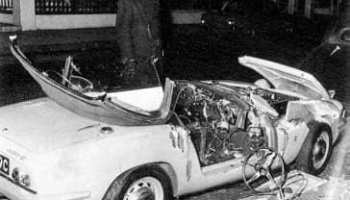
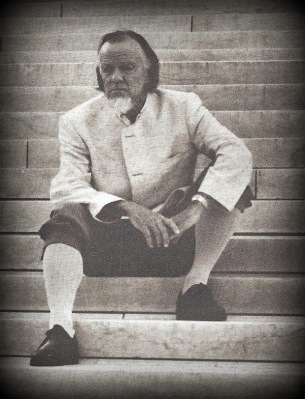




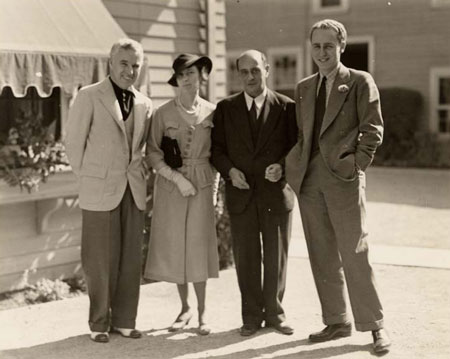
















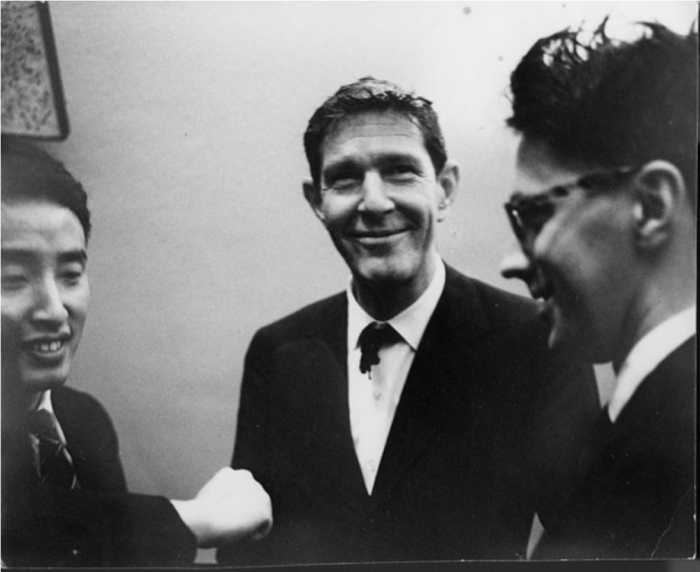















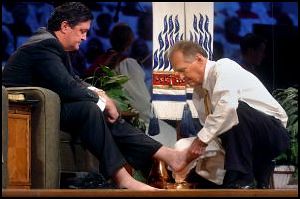


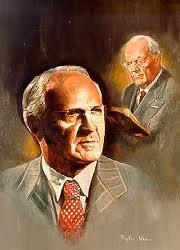


 On the final page of the paperback edition of Misquoting Jesus, Bart Ehrman famously listed the “Top Ten Verses That Were Not Originally in the New Testament.” In an effort to discredit the reliability of the New Testament text, Ehrman offered this list to demonstrate the existence of many late insertions in the text. He found this reality troubling as a young man, and eventually walked away from his Christian faith as a result:
On the final page of the paperback edition of Misquoting Jesus, Bart Ehrman famously listed the “Top Ten Verses That Were Not Originally in the New Testament.” In an effort to discredit the reliability of the New Testament text, Ehrman offered this list to demonstrate the existence of many late insertions in the text. He found this reality troubling as a young man, and eventually walked away from his Christian faith as a result:



